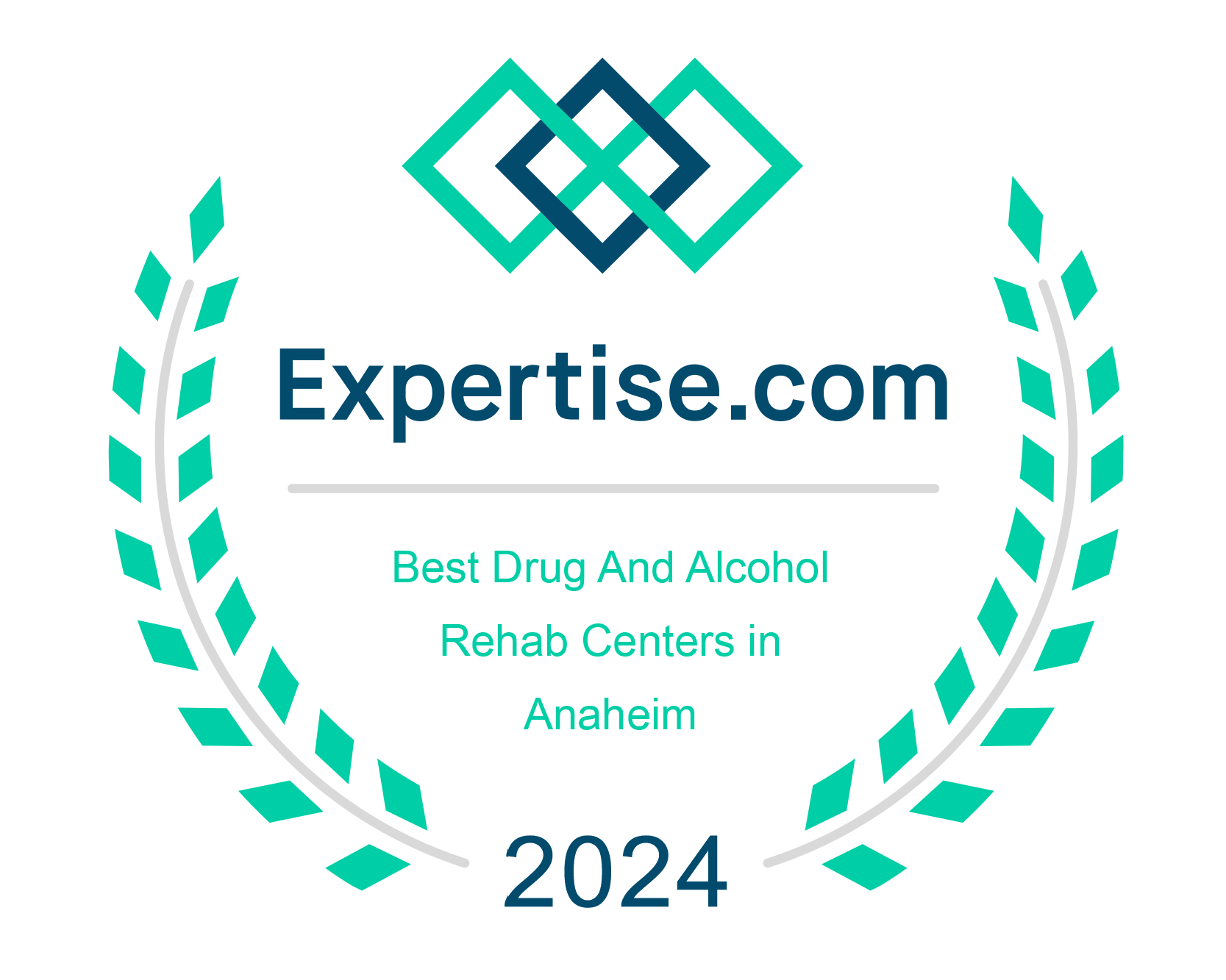How Anxiety and Addiction Go Together
One of the most common co-occurring issues present in persons with addiction is anxiety. People are often self-treating anxiety with drugs and alcohol because it provides temporary relief of unwanted symptoms. The problem becomes that the continuous cycle of self-medication and rebound anxiety uncovers a deeper and deeper hole for the individual, making treatment and defeating this downward spiral a huge challenge as time goes by.
Different Types of Anxiety
There are several types of anxiety disorder. Generalized Anxiety Disorder is one of the most prevalent presentations of the condition.
Generalized Anxiety Disorder (GAD)
With GAD, people excessively worry and emphasize everyday issues, such as their relationships, health, basic responsibilities, and finances. These worries are disproportionate, and at times they occur without a real reason. The Anxiety and Depression Association of America (ADAA) reports that GAD affects 6.8 million adults in the U.S., the equivalent to over 3% of our population.
Panic Disorder
The panic disorder presents itself when individuals are overwhelmed by such fear and tension that they have difficulty just existing. Symptoms may cause difficulty breathing, trembling uncontrollably, and feeling nauseated. This is a severe form of anxiety disorder that affects a small percentage of the population and is twice as common in females than males.
Social Anxiety Disorder
The National Institute of Mental Health has recorded that roughly 12% of the U.S. adult population suffers from some level of social anxiety disorder. A disorder that potentially causes paralyzing fear of being judged by other people or embarrassing oneself in a public setting. For this reason, those suffering from social anxiety disorder may go to great lengths to curb interactions with others. Consequently, they often become isolated, losing chances to make friends, business opportunities, or engage in romantic relationships.
Anxiety disorder often goes untreated because it is mistaken as shyness. Unlike shyness, those with social anxiety disorder cannot simply “get over” the deep feeling of discomfort in their own skin. Forcing people into a public situation when they are not ready to interact with people in social settings can be harmful, traumatizing, and debilitating. People might start feeling symptoms of social anxiety disorder even weeks before an event is scheduled. They might start to experience panic merely by anticipating how they will feel in the future.
Signs of Anxiety and Panic Attack
While there are several sets of diagnostic criteria for different anxiety disorders, some general signs and symptoms are more common than others. Here are some of those symptoms:
- Feeling nervous, irritable, or edgy.
- Having an intense sense of approaching danger, panic, or doom.
- Tachycardia (increased heart rate).
- Rapid breathing, sweating and trembling.
- Constant feelings of tiredness.
- Lack of concentration.
- Sleep problems.
- Gastrointestinal issues (e.g., nausea, stomach upset).
Feeling Stressed or Overwhelmed? Helpful Tips to Combat Anxiety
Here are some helpful strategies that might help when you are feeling stressed and overwhelmed with feelings of anxiety:
- Try redirecting your attention to a relaxing activity such as yoga, listening to music, meditating, getting a massage, or learning relaxation techniques.
- Eat healthy and well-balanced meals—also, maintain energy-boosting snacks on hand. Bananas or protein bars are great options.
- Be aware of your alcohol and caffeine intake. Both of these substances can aggravate anxiety and trigger panic attacks.
- Get enough quality sleep. Lack of sleep can rapidly aggravate mental wellness issues.
- Exercise daily, even if it is walking. Set small goals, but keep fitness consistent. Scientific data suggests frequency is more valuable than quantity.
- Learn breathing exercises. Inhale and exhale slowly.
- Accept that not everything is under your control, and maybe it will not turn as bad as you think. Discuss your worries with someone that can help you find perspective.
- Try finding a source of laughter. It may be a short comedy. You will be surprised how healing a good laugh is.
- Get busy. Find ways to be active. Maybe providing services in your community. Thinking about helping others is a great way to forget our own issues.
Furthermore, learn to identify triggers, look for a pattern, and maybe you can avoid a stressful situation. If anxiety is negatively affecting your quality of life, talk to a doctor or therapist. Get professional help.
The Cycle of Self-Medication
Self-medication begins with a few drinks, a few pills, or just a one-time smoke. Once the substance enters your body, the brain immediately adapts to its presence, leading to a calm state. Clearly, the sense of calm for someone that is constantly crawling out of their skin feels like a dream come true. As human beings, we crave to repeat what feels good, but it’s not necessarily good for our health.
Tolerance and Addiction
When a person repeatedly uses a substance, tolerance develops. Sooner than later, one needs more and more of the same substance to achieve the initial effects. The body becomes used to the effects and the same amount no longer produces the desired effects. Therefore, usage must increase either in frequency, dosage or both. Tolerance is usually a sign of the body’s physical addiction to the drug.
When someone enters a non-medical drug rehab, one of the greatest difficulties in keeping the person in treatment is controlling the withdrawal symptoms. Weaning down the medications or completely cutting off a substance without the proper medical assistance leads to extreme anxiety, panic, and a combination of compromising withdrawal symptoms and possible seizures.
The hyper-anxiety caused by the lack of proper detox management can last for weeks or months. Often the person cannot withstand this prolonged suffering, leaves treatment, and goes back to the former use. Although the blame is usually placed on the individual, it should actually be pointed to the treatment provider. This is the 21st century; there is absolutely no reason for people suffering from substance use to undergo unassisted detoxification. This type of practice can be physically and emotionally harmful, and it does not provide therapeutic value.
Fear of Withdrawal
When someone realizes they need help, especially if they suffer from anxiety, they immediately start fearing going through withdrawal. If you combine the common barriers for seeking drug or mental health treatment with fear, shame, and poor treatment results, you would understand why so many avoid that first critical step.
Now, if, as healthcare providers, we start concentrating on each person’s specific needs instead of pre-setting rules and protocols, we might be able to help a lot more people and, more importantly, much more effectively.
Here are some enabling or inhibiting factors that keep people from seeking substance use treatment:
- Shame
- Fear of withdrawal
- Negative social support
- Privacy concerns
- Time conflict
- Insufficient knowledge of available treatment options
- Limited financial resources
- Stigma
- The motivation for change
It is time that the recommendations of treatment become more respectful and directed to each person’s health needs. We can do more, and we can surely do much better.
Understanding Mental Health Issues
Take a moment and ask yourself, how much do we really know about mental health issues? Mental health issues impact most of us at some point in our lives. It is not a side issue. On the contrary, these conditions affect millions of Americans’ quality of life every day.
Mental health includes our psychological, social, and emotional well-being. It also affects every aspect of our lives because it directly influences thought processes, feeling, and, consequently, actions. It also helps define how we handle stressful situations, relate to others, and make basic choices that can change our quality of life. Maintaining good and stable mental health is essential at every stage of life, from childhood through adulthood.
Several factors contribute to mental health issues, including:
- Biological factors, such as DNA, genes, or pre-dispositioned brain chemistry.
- Life experiences, especially negative ones, such as trauma or abuse.
- Family history of mental health conditions.
- Social environment.
Studies show that an estimated 20% of those who have an anxiety disorder also have a substance use disorder. To cope, those with GAD may often turn to alcohol and drugs. Unfortunately, relying on these substances will create a roller coaster effect, increasing anxious response once you come down from the substance effects.
Untreated Anxiety Can Lead to Addiction
Individuals struggling with GAD are significantly more inclined to develop an addiction to alcohol and drugs. When the condition goes untreated, symptoms are likely to progress, and people may turn to substances as a means to self-medicate. Alcohol and drugs provide a way to escape negative feelings, ease anxiety symptoms, and produce a sense of relaxation.
Fortunately, there are many better options. First and foremost, it is important to have an accurate diagnosis. When people identify the core issue, they are more likely to find an effective solution. When professionals help patients diminish the intensity of mental health issues, they are more likely to find the path to healing.
Conclusion
Achieving recovery from substance abuse involves focusing and addressing the underlying core issues that led to anxiety in the first place. There is no one solution for all. People need to be assessed and diagnosed by mental health professionals and guided to find the help to give them the best quality of life. Maybe drug detox, psychiatric assistance, outpatient therapy, or any other means which leads those in need to a healing and healthy path.
If you’re hesitant to seek help and are scared to feel life on life’s terms, don’t be. You’ll find that there are compassionate and effective solutions. You might also learn that you are much stronger than you believe, and you deserve to heal and find happiness.
Call now to speak confidentially with an addiction expert.
Committing to overcome addiction should not have to mean relinquishing comfort, privacy, or self-respect. Why not experience individualized care and comfort? If you’re ready to take part in a world-class private treatment program, it’s time to call Domus Retreat.Call 1-866-713-3869



















